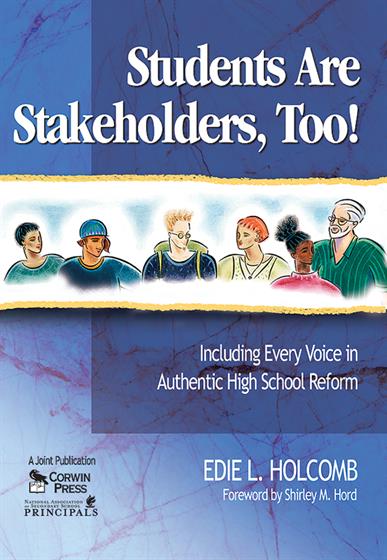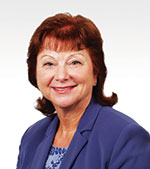List of Figures
Foreword
Preface
Acknowledgements
About the Author
1. September, Year 3: Norris Starts at Knownwell High
2. Puzzles and Premises
Puzzles
Premises
3. September, Year 1: Morris, Mr. Spark and the Table Ten Advisory Group
Questions for Reflection
Content for Consideration
A Student Gets the Last Word
4. Students as Stakeholders
Creating the Space for Active Student Voice
The School Improvement Process
Alignment Between Mission and the School Portfolio
Alignment Between Mission, Portfolio, Celebrations and Concerns
Alignment Between Concerns and Priorities
Alignment Between Priorities, Study and Strategies
Alignment Between Priorities, Strategies and Evidence
Alignment Between Strategies, Evidence and Action Plans
Use of Data to Guide Decision Making
Data for Initial Review
Data to Focus Priorities
Data from Further Study
Data to Document Results
Plans for Ongoing Data Collection
Untapped Potential: Students as Stakeholders
Students as Stakeholders in the School Culture
Students as Stakeholders in Use of Data
Students as Stakeholders Planning for Change
Students as Stakeholders Monitoring Change
Students as Stakeholders in Ongoing Issues
Students as Stakeholders at Any Age
5. October, Year 1: Sentiments on Surveys, Morris on (a) Mission, and Joe Meets Mo
Questions for Reflection
Content for Consideration
Eight Levels of Student Participation
Hawaii's Students Speak
Student Voice Team
Principal as Keeper of the Mission
A Student Gets the Last Word
6. November, Year 1: Morris Does Data
Questions for Reflection
Content for Consideration
Students and Data
Service and Service-Learning
A Student Gets the Last Word
7. December, Year 1: Morris Minds the C's and R's
Questions for Reflection
Content for Consideration
Value of Group Process Tools
Personalization
A Student Gets the Last Word
8. January, Year 1: Studying Together
Questions for Reflection
Content for Consideration
Advisories and Extracurriculars
The Unheard Voice of the "Middle" Student
A Student Gets the Last Word
9. February, Year 1: Mr. Shepley's Epiphany
Questions for Reflection
Content for Consideration
School Stress and School Connectedness
The Reading Challenge
A Student Gets the Last Word
10. March, Year 1: Students Define Learning
Questions for Reflection
Content for Consideration
Dropout Factors
Instruction - Powerful and Differentiated
Gender Differences and Reading
A Student Gets the Last Word
11. April, Year 1: It's a Match!
Questions for Reflection
Content for Consideration
The Classics: Bloom and Hunter
Adult Advocates
Personal Plans for Progress
Counselors
A Student Gets the Last Word
12. May, Year 1: Kick-off Assembly - All Thumbs Up
Questions for Reflection
Content for Consideration
Flexibility and Support for Student Learning
Ninth-Grade Transition Programs
A Student Gets the Last Word
13. September, Year 2: Fresh Start, Staff Retreat
Questions for Reflection
Content for Consideration
Essential Learnings
Advisory Programs
A Student Gets the Last Word
14. October, Year 2: Football Faux Pas, Just Walking Through
Questions for Reflection
Content for Consideration
Restorative Justice
Walk-Throughs
A Student Gets the Last Word
15. November, Year 2: Plans and Portfolios
Questions for Reflection
Content for Consideration
Four-Year Plans
Senior Projects and Problems
A Student Gets the Last Word
16. December, Year 2: Home for the Holidays
Questions for Reflection
Content for Consideration
A Student Gets the Last Word
17. January, Year 2: Progress Checks
Questions for Reflection
Content for Consideration
A Student Gets the Last Word
18. February, Year 2: Midcourse Corrections and Congratulations
Questions for Reflection
Content for Consideration
A Student Gets the Last Word
19. March, Year 2: Advisory Adversity, and Failure to Meet Commitments
Questions for Reflection
Content for Consideration
Protocols
Teacher Study Groups
Peer Coaching
A Student Gets the Last Word
20. April, Year 2: The Stakes Are High
Questions for Reflection
Content for Consideration
Listening and Leadership
Students on Test Prep
A Student Gets the Last Word
21. May, Year 2: Morris Graduates
22. Norris' Notebook
Epilogues...
From a Principal
From a Graduate
From a Student Leader
From a Future Teacher
From the Author
References
Index



